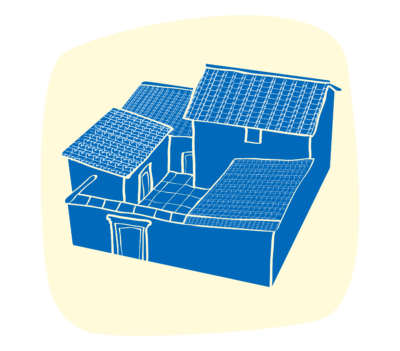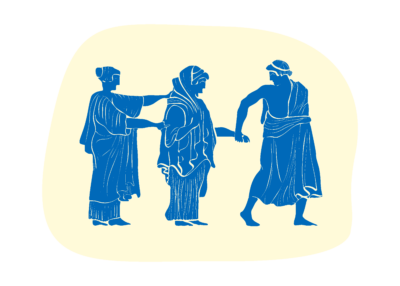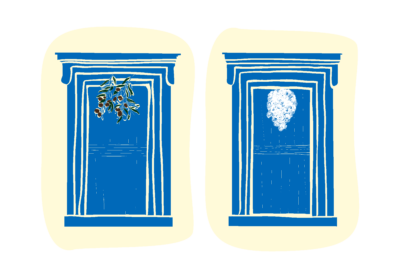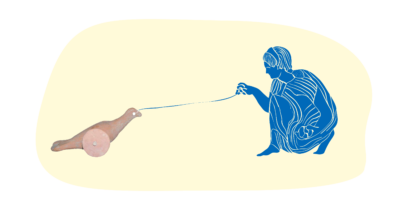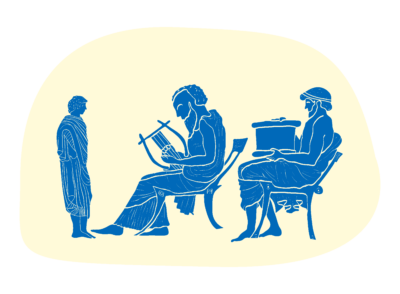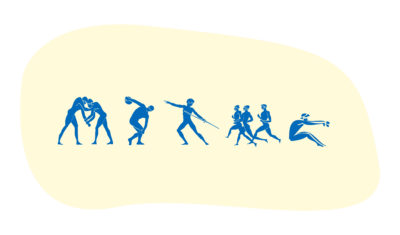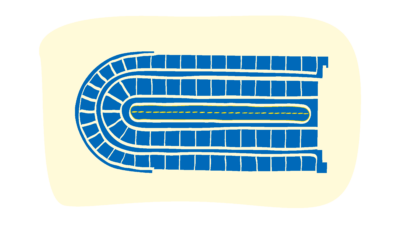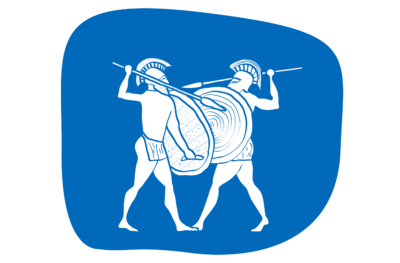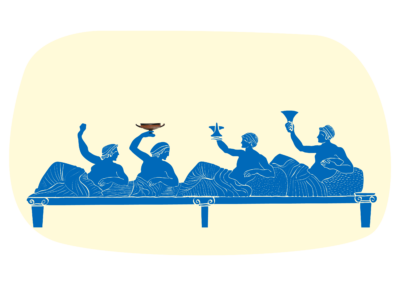Agora
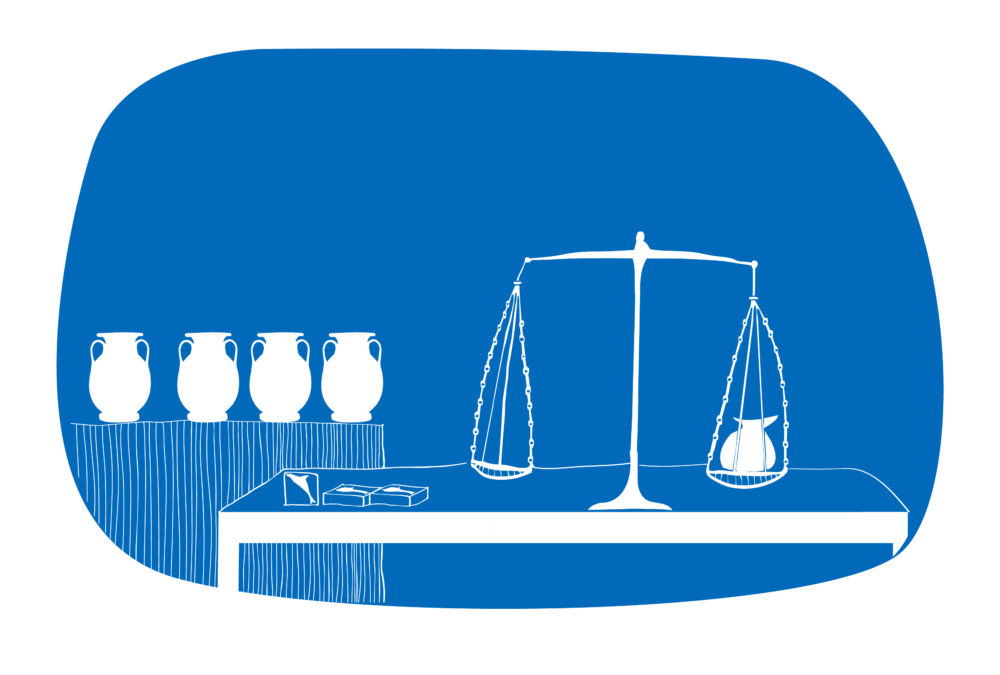
At the Agora
The Agora is the place where all commercial transactions take place and at the same time it is the political and administrative center of the city.
In the Agora, one can find the stalls of the merchants with their various products, the fountains where the women go to get water, the shoemakers, the barbers and various other professionals. All public services, the courts and the galleries where philosophers develop their views are concentrated there. It is also the place where various religious events, theatrical performances and sports competitions are held.
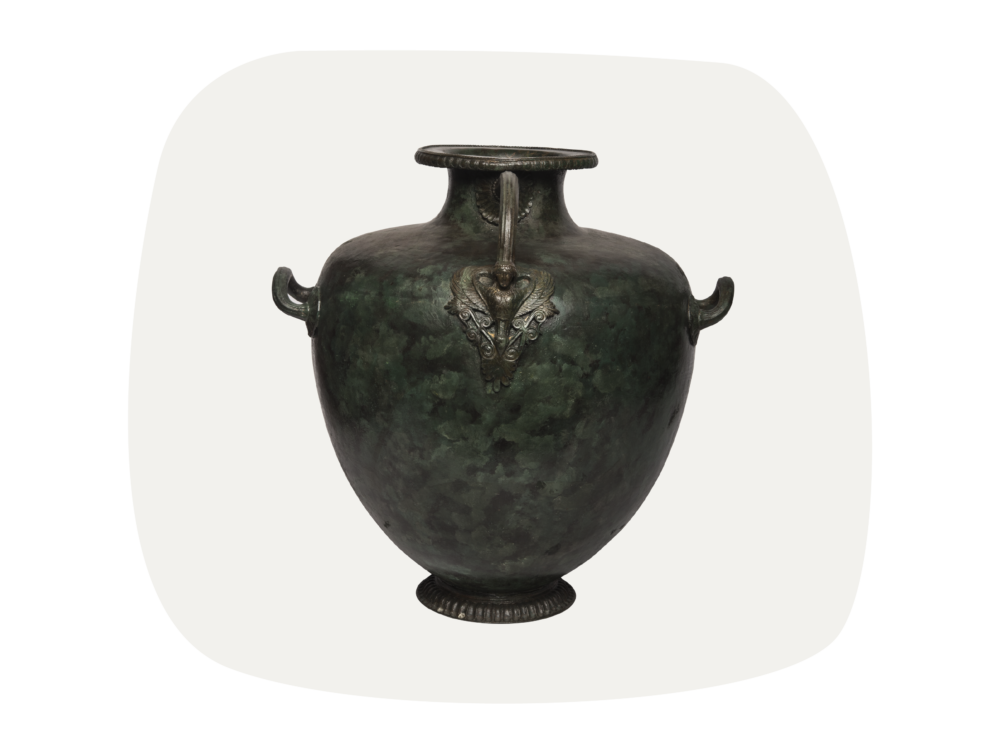
Ballot box
Athenians would gather once a year in the Agora to decide whether a citizen was dangerous to the Republic and needed to be exiled. They would engrave the name on a pottery shard, drop it into a bronze vessel, the ballot box, and then count the votes. Whoever collected the most votes out of 6,000 was expelled from the city-state for ten years.
This measure was called ostracism.
Bronze hydria (water jar). Hydriae were used as ballot boxes. 5th century BC.
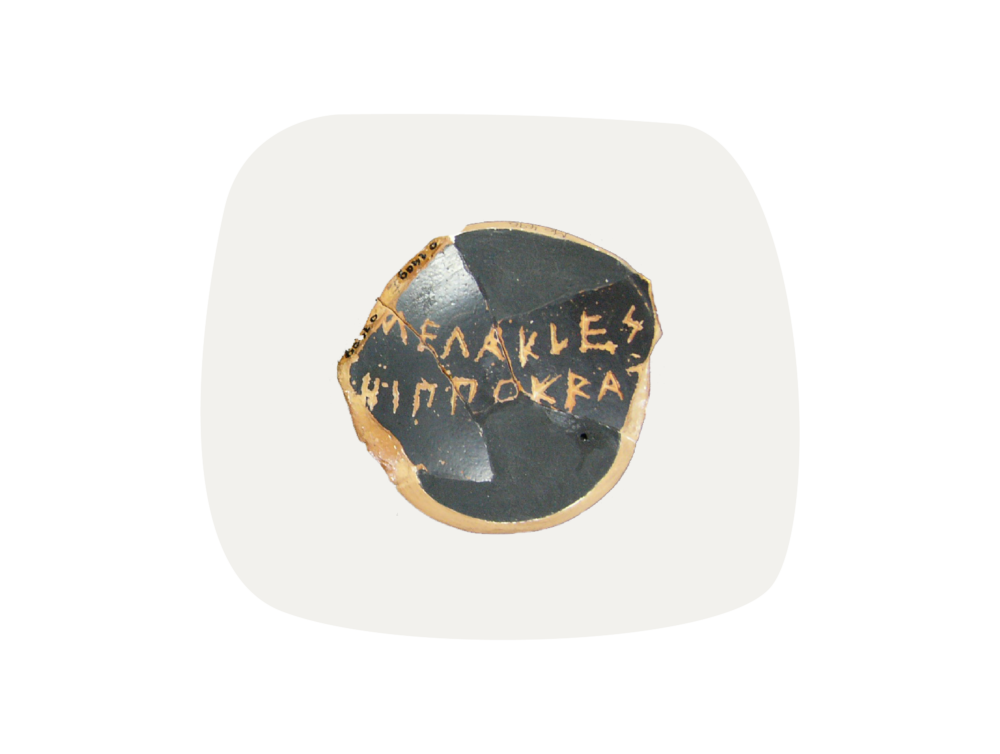
Votes
These vase fragments come from the site of the Agora and are engraved with the name of Megacles, son of Hippocrates, who was exiled (ostracized) in 486 BC.
Fragments of clay vases (ostraka) inscribed with the names of ostracized Athenians. 5th century BC
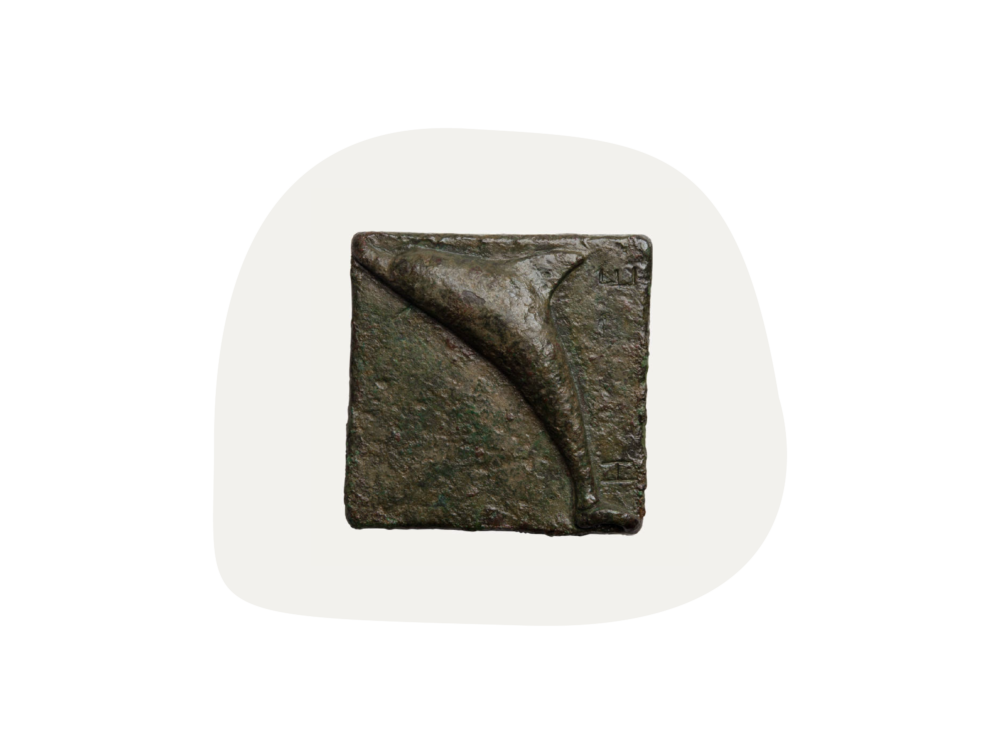
Weights
In ancient Greece they used scales with weights. They put the product on one tray and the corresponding weights on the other to calculate the weight accurately. These scales were used, until recently, by market traders until they were replaced by digital scales. In order to check the purchases in the ancient Agora of Athens, i.e. whether the weights had the correct weight, official weights and measures of the Athenian state were used and kept in the Tholos, one of the public buildings of the Athenian market.
This particular weight was 446 grams and decorated with an embossed dolphin.
Bronze weight with relief dolphin. 5th century BC
Who...stays?
With your friends, take a piece of paper, clay, or plasticine and cut it into pieces resembling ostraka. Each of you secretly write or carve the name of a person from the group. Place the ballots in a box. The person who receives the most votes wins, stays in game, and gets to count the ballots during the next round.
What was the Agora?
In ancient Greece, the Agora was a “meeting place.” In the Agora, ancient Athenians could buy whatever they needed, like food, clothes and shoes.

